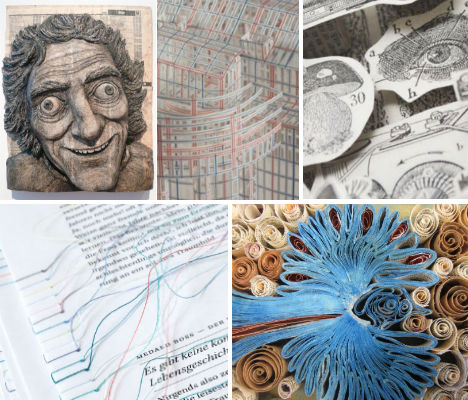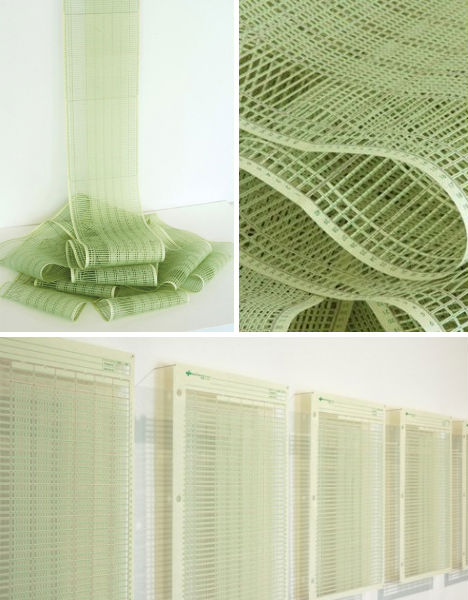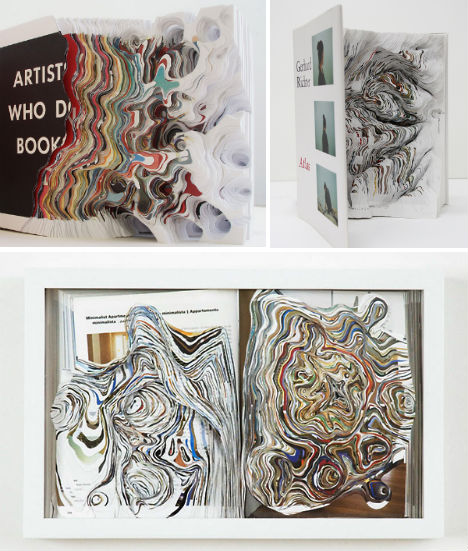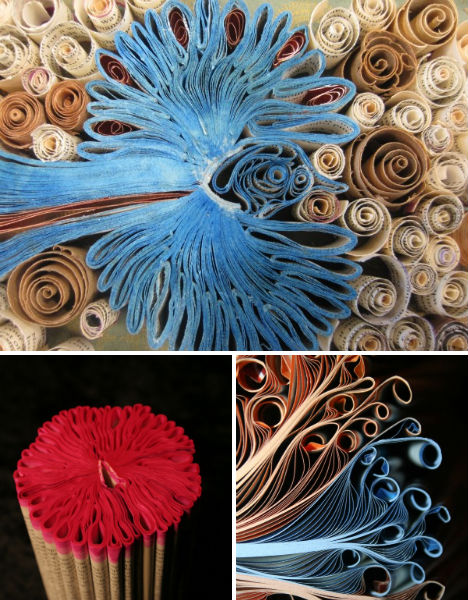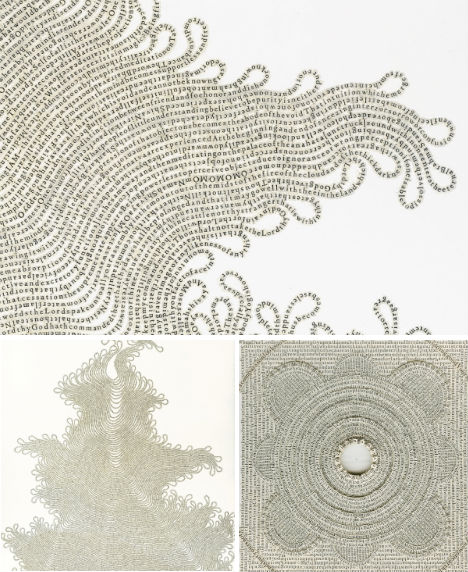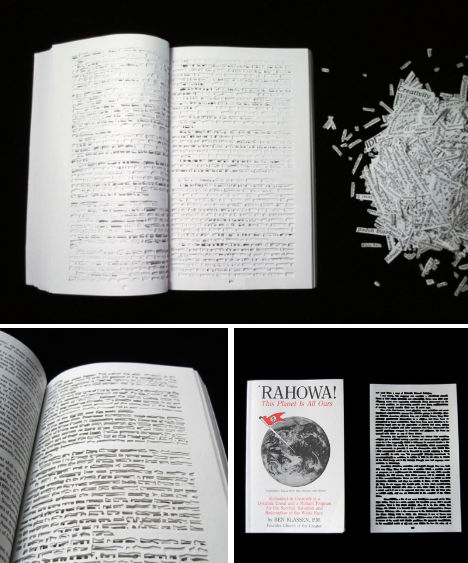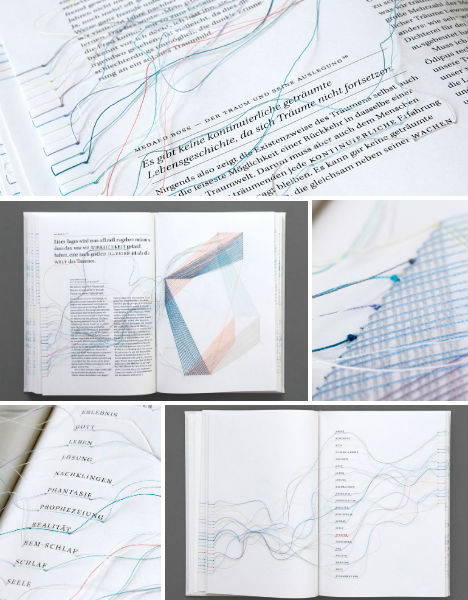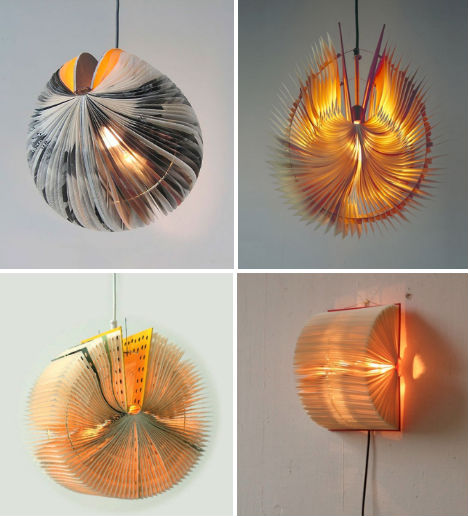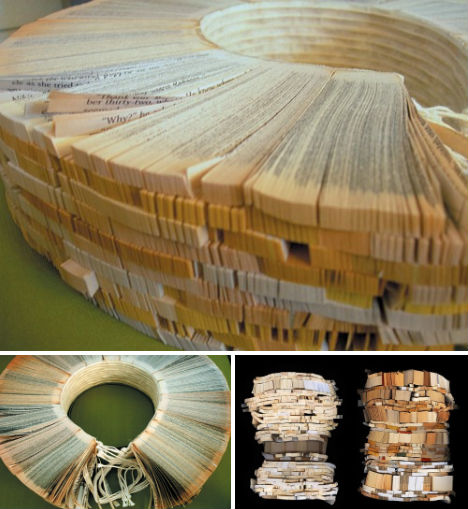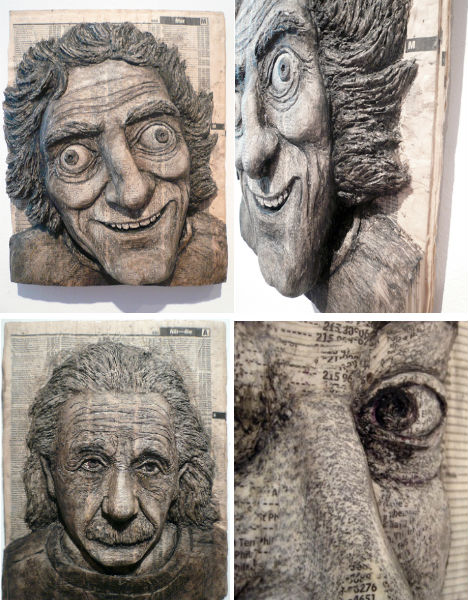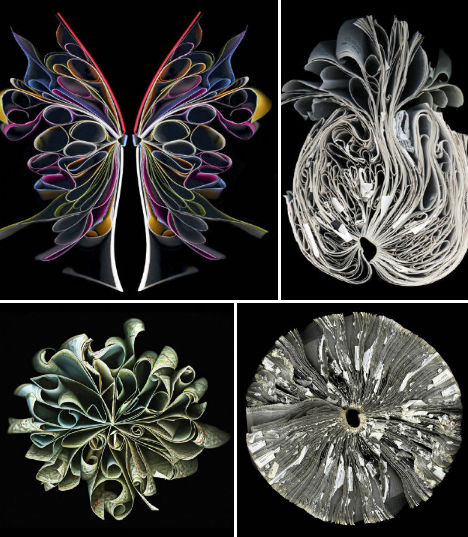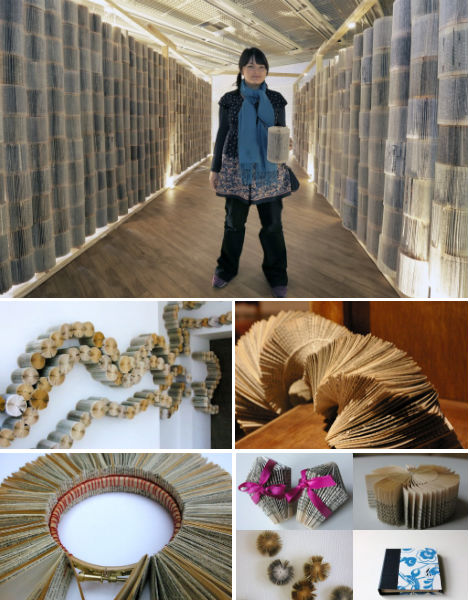Why should out-of-date, unwanted books molder away in the dark corners of libraries, or – far worse – in a landfill? Artists working with books, whether they make it their sole chosen medium or just experiment once in a while, rescue these bound volumes of art and information and fold, cut, carve, glue, assemble or otherwise transform them into amazing sculptures and installations that honor or often transcend the meaning held within the pages.
Jill Sylvia
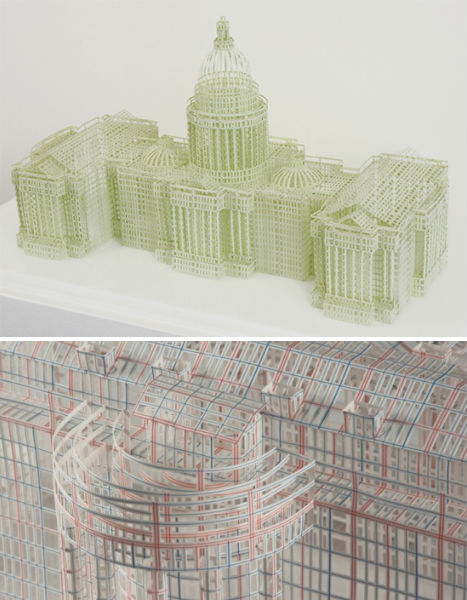
(images via: jillysylvia.com)
Jill Sylvia meticulously removes the blank entry blocks in ledger books and balance sheets, leaving behind nothing but delicate paper mesh. These geometric skeletons are then used to build amazing replicas of famous buildings like the U.S. Capitol and the White House.
Julia Feld
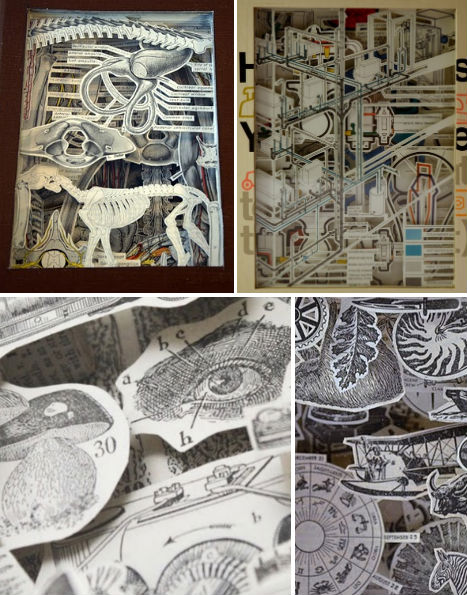
(images via: holystokes)
Favoring anatomy books, wildlife guides and instruction manuals, artist Julia Feld selectively removes parts of pages to leave behind layered collages, often left within the hardcover to resemble shadow boxes. She sells these intricate works at her Etsy shop, Holy Stokes.
Noriko Ambe
(images via: norikoambe.com)
Multidimensional and lush, the cut-outs by Noriko Ambe almost seem to have occurred simultaneously as part of some strange natural process. Says Ambe, “Time is essential to my work. Because over time I add more and more paper to a sculpture, the work itself ends up embodying the time taken to create it. The process is as important as the finished product and the simple act of making art every day is important to my practice. Buddhism, although it’s not my intention to show this.”
Bronia Sawyer
(images via: broniart)
Birds, flowers, the waves of the ocean – all of these things and more are evoked simply by curling, folding and coloring the pages of books. Bronia Sawyer creates little paper worlds in which these animals seem to frolic and thrive. “A book is a magical thing, to look at a page of text at a glance gives no clue about its content, but to read the words brings a story to life, it opens your imagination’s floodgates and creates an invisible world in your mind which only you can see.”
Meg Hitchcock
(images via: meghitchcock.com)
Cutting words out of religious texts including the Bible, Koran and Torah, Brooklyn-based artist Meg Hitchcock creates these incredible collages “deconstructing the word of God.” Says Hitchcock, “I select passages from holy books and cut the letters from one passage to form the text of another. For example, I may cut up a passage from the Old Testament of the Bible and reassemble it as a passage from the Bhagavad Gita, or I may use type from the Torah to recreate an ancient Tantric text. A continuous line of text forms the words and sentences in a run-on manner, without spaces or punctuation, creating a visual mantra of devotion.”
Ariana Boussard-Reifel
(images via: arianaboussardreifel.com)
In her series ‘Between the Lines’, artist Ariana Boussard-Reifel has cut each and every word out of the pages of books, leaving behind only the white space, creating patterns that render the books meaningless – or do they?
Maria Fischer
(images via: maria-fischer.com)
Traumgedanken (Thoughts on Dreams) is a 76-page collection of literary, philosophical, psychological and scientific texts which provide insight into dream theories. Amazingly, German artist Maria Fischer has hand-sewn the pages with threads that tie images to certain keywords as sort of physical hyperlinks, which, Fischer says, visualize the confusion and fragility of dreams.
The artist explains, “In addition there are five pages where a significant excerpt from a text of the opposite page is stitched into the paper. It is not legible because the type’s actual surface is inside the folded page. This expresses the mysteriousness of dreams and the aspect of dream interpretation.”
Michael Bom
(images via: bomdesign.nl)
Designer Michael Bom turns books of all sorts into stunningly artistic lamps that retain the character of the book’s content. Some are simply opened, with the pages carefully spaced apart, to act as wall lamps; others are carefully cut and crafted to provide a variety of shapes. Between the pages a viewer can just barely glimpse images and text, which create interesting patterns of dark and light on the lantern surface.
Ann Hamilton
(images via: this is colossal)
Multimedia artist Ann Hamilton has occasionally worked with books throughout her 20-year career including projects in which she connected slices of books at the spine to form shapes as well as large-scale installations of stacked books. The installations form dense towers that, by virtue of the varying thicknesses of the books, take on a painterly quality when viewed from afar.
Alex Queral
(images via: projectsgallery.com)
Alex Queral carves faces into books of faceless names, producing three-dimensional portraits that reach deep within discarded phone books. Most are famous faces like PeeWee Herman and Bob Dylan; some are realistic, while others are crafted in an abstracted style. Queral uses an X-ACTO knife and a pot of acrylic medium to carve and set the books, and then applies a black wash to bring out the features.
Cara Barer
(images via: carabarer.com)
Sculptor Cara Barer bends, folds and curls the pages of unwanted books, sometimes coloring their edges, molding them into forms that suggest organic life like birds, insects and even the undersides of mushrooms. Says Barer, “With the discarded books that I have acquired, I am attempting to blur the line between objects, sculpture, and photography. This project has become a journey that continues to evolve.”
Yvette Hawkins
(images via: bookliciousblog)
From small folded paper pieces to installations of thousands of books that fill entire rooms, the art of Yvette Hawkins is inspired by forms in architecture, grids, maps and molecules as well as the geometric forms found in nature.
“The thing I love about paper is the idea that something so fragile and one dimensional can become structured and sturdy just by folding it. I actually started folding books because I wanted to manipulate the way printed words can be seen, so although i have always loved to work with paper, it was mark making and print that drew me to books.”
